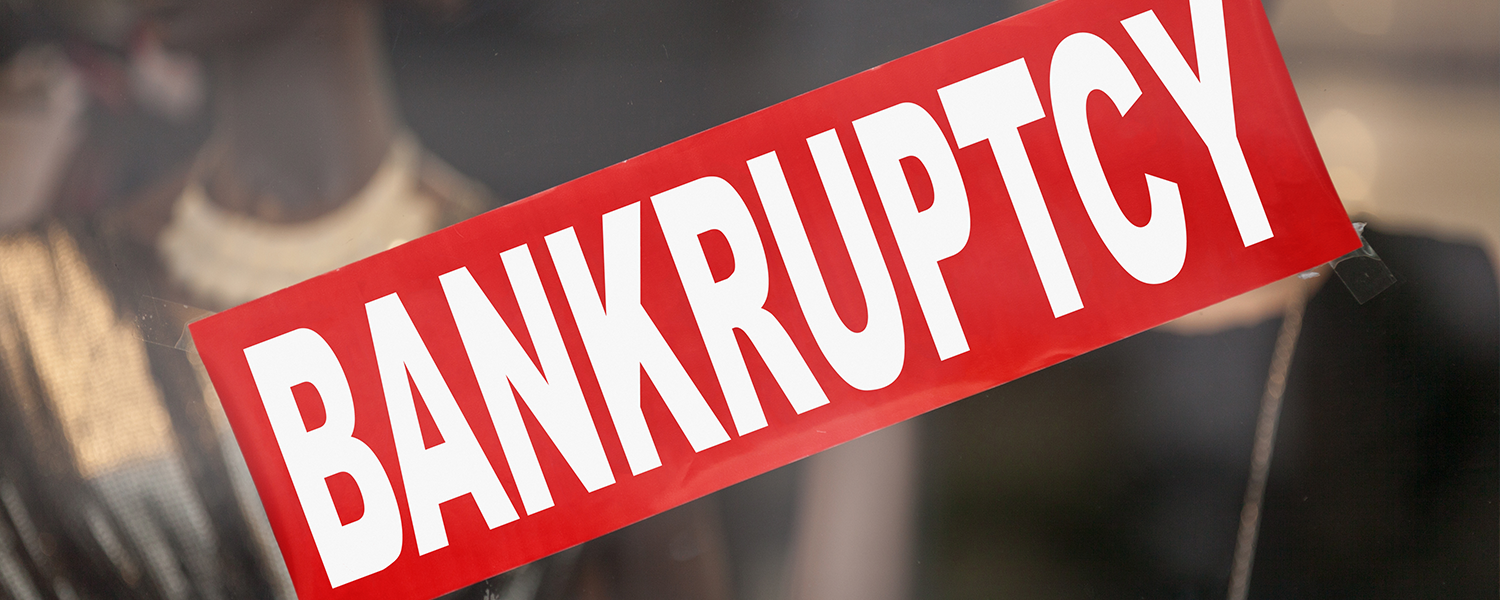Weekly Mass Torts Bulletin 2024-August-26
J&J Targets Texas for New Round in Baby Powder Legal Battle
Johnson & Johnson (J&J) is making a third attempt to secure bankruptcy protection for one of its units to resolve billions of dollars in claims related to its talc-based baby powder, which plaintiffs allege caused cancer.
The company’s previous two attempts were blocked by judges in New Jersey, who ruled that the thousands of lawsuits did not create enough financial distress to justify bankruptcy. For this new effort, J&J is eyeing Texas, a state known for its business-friendly courts.
The latest Chapter 11 bankruptcy filing, which includes a $6.5 billion settlement offer, is expected to be filed in Texas. Critics argue that by shifting the case to Texas, J&J is engaging in "forum shopping," a legal strategy where companies choose a court that is more likely to rule in their favor. This tactic is becoming increasingly popular among companies facing litigation in states with less favorable legal environments.
A law professor from the University of Illinois criticized J&J's approach, calling it "a blatant case of forum shopping." The professor noted that while it's the job of lawyers to explore different strategies for their clients, it is up to judges to maintain fairness in the legal process. Texas has become a go-to destination for companies frustrated with rulings in other states, and J&J's decision to file in Texas reflects this trend.
J&J has maintained that its talc-based baby powder never caused cancer and that it was appropriately marketed for more than a century. However, following mounting legal challenges, the company discontinued its talc-based products in favor of a cornstarch-based alternative. Despite its defense, the company continues to face tens of thousands of lawsuits.
 In July, a federal appeals court rejected J&J’s second bankruptcy attempt in New Jersey, stating that the company failed to prove it faced a significant threat of financial distress from the litigation, given its substantial financial resources. J&J reported $85.2 billion in revenue in 2023, which undercut its claims of financial jeopardy.
In July, a federal appeals court rejected J&J’s second bankruptcy attempt in New Jersey, stating that the company failed to prove it faced a significant threat of financial distress from the litigation, given its substantial financial resources. J&J reported $85.2 billion in revenue in 2023, which undercut its claims of financial jeopardy.
J&J’s third attempt to resolve these cases in bankruptcy court involves a controversial tactic known as the "Texas Two-Step." This strategy involves creating a subsidiary to absorb liability for the talc lawsuits, which is then moved to Texas to seek bankruptcy protection. Critics argue this allows wealthy companies to confine mass-tort cases to bankruptcy courts, effectively forcing victims to accept lower settlements.
This latest bankruptcy attempt differs from the previous ones in that J&J has secured the support of over 75% of claimants who allege the company’s talc-based baby powder caused their cancers. This level of support is crucial under Chapter 11 rules, as it could enable a bankruptcy judge to swiftly approve the unit’s settlement plan, which proposes $6.5 billion to resolve all current and future cancer claims.
Despite the support from claimants, some legal experts remain skeptical that J&J's latest strategy will succeed. A law professor from the University of North Carolina expressed doubts, saying the chances of the company succeeding in its third attempt "should be zero." The first attempt was made in North Carolina, but the case was transferred to New Jersey after a judge ruled that J&J didn’t have sufficient ties to North Carolina. A similar situation could unfold in Texas.
However, a Wake Forest University law professor suggested that the process could still result in a fair settlement for victims, many of whom have been waiting years for compensation for their injuries or the loss of loved ones.
Avon Files for Bankruptcy Amid Talc Lawsuit Liabilities

After being hit with a $24.4 million verdict in a talcum powder mesothelioma lawsuit, Avon Products, Inc. has declared bankruptcy, citing the financial threat of future talcum powder litigation as the driving factor.
The jury decision, which was delivered just days before the bankruptcy filing, could be just the beginning of a wave of legal liabilities the company might face due to health risks associated with its talcum powder products.
Avon filed for Chapter 11 bankruptcy protection in the U.S. Bankruptcy Court for the District of Delaware, explicitly pointing to "legacy talc liabilities" as the primary reason for the filing. The company, which no longer sells products in the U.S. after divesting its North American business in 2016, still retains the Avon brand in markets outside the United States. These non-U.S. holdings are not included in the bankruptcy proceedings.
The recent lawsuit involved a plaintiff who was diagnosed with pleural mesothelioma in 2023, following exposure to asbestos in Avon talcum powder while working at a manufacturing facility near Chicago in the early 1980s. Mesothelioma, a rare and aggressive cancer that attacks the lining of the chest and lungs, is primarily caused by asbestos exposure. The disease often remains undetected for decades, and by the time it is diagnosed, it is usually at an advanced stage, leaving patients with limited treatment options and a poor prognosis.
Avon’s bankruptcy follows a pattern seen in other companies facing similar litigation. Johnson & Johnson, for instance, has faced tens of thousands of lawsuits alleging that its talcum powder products, including Johnson’s Baby Powder and Shower-to-Shower talc powder, contained asbestos and caused users to develop mesothelioma, ovarian cancer, and other serious health conditions.
 Despite its consistent denial of asbestos contamination in its talcum powder, Johnson & Johnson issued a Baby Powder recall in 2019 after tests confirmed the presence of toxic fibers in the product. The company has since transitioned to selling cornstarch-based powders.
Despite its consistent denial of asbestos contamination in its talcum powder, Johnson & Johnson issued a Baby Powder recall in 2019 after tests confirmed the presence of toxic fibers in the product. The company has since transitioned to selling cornstarch-based powders.
Avon’s parent company, Natura & Co., which acquired Avon in 2020, will now purchase Avon’s non-U.S. operations for $125 million. Natura will also provide up to $43 million in financing to sustain the company during the bankruptcy process and facilitate the sale of Avon’s remaining assets. Notably, Natura had already removed talc from Avon products sold in the U.S.
The Avon brand in the U.S. is currently owned by LG Household & Health Care Ltd., which is not involved in the bankruptcy proceedings.
Avon’s bankruptcy filing mirrors the legal strategy employed by other companies, including Johnson & Johnson, that have sought bankruptcy protection to manage the massive legal liabilities associated with talcum powder and potential cancer risks.
Johnson & Johnson, which currently faces an estimated 100,000 Baby Powder and Shower-to-Shower lawsuits, has already been ordered to pay billions of dollars in damages in several cases. While many of these claims involve ovarian cancer, a significant number also involve mesothelioma, underscoring the widespread impact of asbestos-contaminated talcum powder on consumers.
GSK Wins as Florida Court Rejects Zantac-Cancer Testimony

GlaxoSmithKline (GSK) is seeking the dismissal of a Zantac lawsuit in Florida, following a favorable ruling by the state court judge to exclude the plaintiff’s expert witness, who was set to testify that the recalled heartburn medication increased cancer risk for users.
This development was highlighted in a GSK press release, marking one of several recent legal victories for the pharmaceutical giant, which still faces tens of thousands of Zantac cancer lawsuits across various state courts in the U.S.
Zantac, known generically as ranitidine, was a popular over-the-counter medication used to treat heartburn and acid reflux. It was sold by multiple companies, including GSK, Pfizer, Sanofi, Boehringer Ingelheim, and other generic manufacturers, until all versions were removed from the market over four years ago. The recalls were mandated by the FDA after discovering that ranitidine, the active ingredient in Zantac, is chemically unstable and can produce high levels of N-Nitrosodimethylamine (NDMA), a potent carcinogen.
Due to the drug manufacturers' failure to warn consumers about this cancer risk, nearly 100,000 former Zantac users have filed lawsuits, claiming that the drug caused various cancers, including bladder, liver, pancreatic, and stomach cancer. Initially, the litigation was concentrated in federal courts, where cases from across the country were centralized for coordinated discovery and pretrial proceedings.
However, before any federal case reached trial, the presiding judge issued a controversial ruling that excluded all expert witness testimony from the plaintiffs, which was crucial for establishing a link between Zantac and cancer. This ruling, based on a strict interpretation of federal rules on expert testimony admissibility, led to the dismissal of all federal Zantac cases in late 2022.
The federal ruling did not affect state court claims, where different standards for the admissibility of expert testimony apply. The recent Florida court decision echoes the earlier federal ruling, with the court finding that the plaintiffs' expert witness methodologies were unreliable and failed to meet the Daubert standard for scientific evidence.
GSK’s press release emphasized the parallels between the Florida ruling and the federal MDL court decision from December 2022, where expert evidence presented by the plaintiffs was similarly rejected, leading to the dismissal of cases involving bladder, esophageal, gastric, liver, and pancreatic cancers.
The Florida trial, which focused on claims that Zantac caused prostate cancer, was scheduled to go before a jury in late September but is now likely to be dismissed following the exclusion of expert testimony. However, this ruling does not impact the numerous claims pending in other state courts nationwide, where litigation continues.
 GSK faces more than 70,000 lawsuits in Delaware alone, where a state court judge recently cleared Zantac cases to proceed to trial, with the first trials expected in late May 2024.
GSK faces more than 70,000 lawsuits in Delaware alone, where a state court judge recently cleared Zantac cases to proceed to trial, with the first trials expected in late May 2024.
Additionally, GSK has faced several Zantac trials in Illinois state court, where the first two jury trials ended in defense verdicts, though the company is expected to confront a continuous stream of future trials. Plaintiffs’ expert testimony has been accepted in these trials, unlike in the federal MDL and Florida state cases.
Further trials are anticipated later this year in Texas state court, with at least one trial scheduled in Nevada for September 2026 and three cases set for trial in Pennsylvania state court next year. Amidst these ongoing legal battles, Pfizer and Sanofi have already reached settlements totaling hundreds of millions of dollars to resolve their involvement in the development and marketing of Zantac. However, GSK has not participated in these settlements and potentially faces the largest liability among the companies involved.
Despite consistently denying that scientific evidence links Zantac to cancer, GSK has quietly reached settlements in a few individual cases, resolving those claims just before the trials were set to commence. As the litigation continues, GSK remains under significant legal pressure as more trials approach in various state courts.


